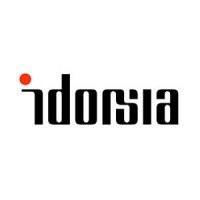Daridorexant Provides Positive Phase 3 Results in Adults with Insomnia
Breaking phase 3 data were just announced from the results of the daridorexant (Quviviq) clinical trial for adults with insomnia in Japan.

Breaking phase 3 data were just announced from the results of the daridorexant (Quviviq) clinical trial for adults with insomnia in Japan. While the dual orexin receptor antagonist (ORA) received FDA approval earlier this year in the US, new data reinforce the drug's overall efficacy and New Drug Applications (NDAs) being submitted internationally.
This study investigated the effect of 25 and 50 mg doses of daridorexant among the adult and elderly adult patient populations with insomnia disorder. A total of 490 participating patients were randomized for the double-blind, placebo-controlled, phase 3 study where they received either a placebo, a higher dose, or lower dose of the therapy once daily for 28 days.
"Patients with insomnia have trouble falling or staying asleep, as well as waking up earlier than desired, all of which lead to detrimental effects on both physical and mental health," Makoto Uchiyama, MD, PhD, Director, Tokyo Adachi Hospital, and Medical Advisor of the study said in a statement. "This Phase 3 trial showed that daridorexant increased total sleep time and shortened sleep latency in patients with insomnia without marked hangover symptoms the next morning which clearly indicates its potency to improve core symptoms of insomnia."
The relatively new approach to insomnia therapy addresses the orexin system's role by integrating 2 forms of orexin neuropeptides. Regulated by intricate neural circuitry in the brain, the orexin system serves as a key component of the wake and sleep signaling that impacts wakefulness.
"Such a promising outcome was likely due to the unique characteristics of the drug, a dual orexin receptor antagonist with an optimal elimination half-life,” Uchiyama continued.
Orexin A and B are small molecules within the nerve cells that serve as reciprocal communication and stimulates targeted neurons in the wake system which initiates response from serotonin, histamine, acetylcholine, norepinephrine. The disruption of this system often leads to the overactivity of the wake system which is a principle driver of insomnia.
"The Idorsia Japan team will now fully analyze the study data and I look forward to sharing the wealth of data generated with daridorexant with Japanese health authorities in the form of a new drug application for marketing authorization in Japan. Together with our partner Mochida, the whole team is eager to rapidly make daridorexant available to Japanese patients with insomnia," Satoshi Tanaka, DMSc, President of Idorsia Pharmaceuticals Japan stated.